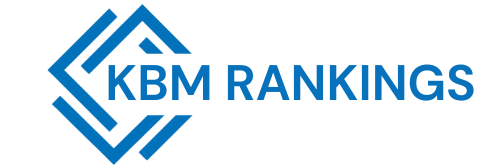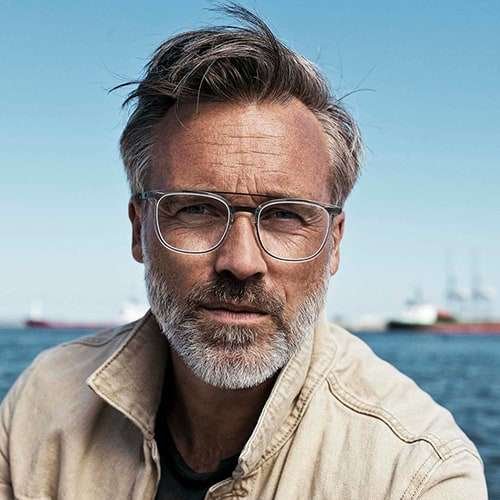For athletes, clear vision is crucial for peak performance. Whether you’re playing tennis, running marathons, skiing down slopes, or engaging in any other sport, having the right eyewear can significantly enhance your experience and results. Many people assume that standard glasses or contact lenses are enough for vision correction, but athletes often require specialty eyewear that can protect their eyes, improve vision clarity, and help boost performance.
Why Vision Is Critical for Athletes
Athletes rely on their vision for hand-eye coordination, depth perception, reaction times, and overall awareness of their surroundings. Here are some examples of how clear vision can impact athletic performance:
- Tennis and Baseball: Tracking the ball’s speed, spin, and direction requires sharp vision, especially when it’s moving at high speeds.
- Cycling and Running: Clear peripheral vision is essential for noticing other participants or obstacles while on the road or trail.
- Water Sports: Swimmers, surfers, and other water sports athletes need eyewear that provides clarity underwater or against glare from the sun.
- Skiing and Snowboarding: In these activities, athletes need protective eyewear to combat snow glare and harsh winds, while still maintaining clarity and contrast on snowy surfaces.
Opticians play a key role in recommending specialized eyewear designed for different sports, addressing the unique challenges athletes face.
Types of Specialty Eyewear for Sports
Here are some common types of sports eyewear that opticians in Nassau County can recommend to help athletes improve their performance:
1. Prescription Sports Glasses
Prescription sports glasses are designed for athletes who need vision correction but find regular glasses impractical for athletic activities. These glasses are crafted to fit securely on the face and often come with impact-resistant lenses to protect the eyes from fast-moving objects or falls.
For instance:
- Basketball players might wear shatterproof lenses to protect their eyes from impact.
- Soccer players may need lightweight, wraparound frames that stay securely in place during rapid movement.
Opticians ensure these glasses are made from durable materials like polycarbonate and are fitted properly to avoid slipping, ensuring that athletes maintain clear vision without sacrificing comfort or safety.
2. Sports Goggles
For high-impact sports such as football, hockey, or rugby, sports goggles offer an added layer of protection. These goggles are designed to stay in place during physical activities and protect athletes from eye injuries. Unlike traditional glasses, sports goggles are typically made with wraparound frames that provide better peripheral vision and are built to handle heavy-duty impacts.
Opticians can fit goggles with prescription lenses if necessary and recommend goggles with features like anti-fogging technology, which is particularly useful for athletes in cold-weather or high-intensity sports.
3. Sunglasses with UV Protection
Outdoor sports like cycling, running, golf, or skiing expose athletes to harmful ultraviolet (UV) rays. Over time, UV exposure can damage the eyes and impair vision. Sunglasses with UV protection are essential for outdoor athletes to reduce glare, protect the eyes, and improve visibility.
For sports like skiing or snowboarding, opticians recommend polarized lenses that reduce glare from snow and enhance contrast, making it easier to detect changes in terrain. For cyclists or runners, sunglasses with interchangeable lenses allow athletes to adjust their eyewear based on changing light conditions throughout the day.
4. Protective Eyewear for Water Sports
Athletes involved in swimming, surfing, or other water sports often struggle with visibility due to water exposure. Swimming goggles with corrective lenses or anti-fog technology can help swimmers maintain clear vision underwater, while surf goggles provide added protection from harsh sun glare and ocean spray.
Opticians can offer water-resistant, comfortable eyewear options with adjustable straps for a snug fit that doesn’t interfere with the athlete’s performance in the water.
5. Contact Lenses for Athletes
For athletes who prefer to avoid wearing glasses or goggles during competition, contact lenses are a popular option. Opticians can recommend contact lenses that are designed for high-performance activities, offering stability, comfort, and superior vision correction.
Sports-specific contact lenses may be designed to enhance contrast sensitivity and depth perception. This can be especially beneficial for sports like golf, where subtle changes in the landscape are critical, or for tennis, where ball tracking is crucial.
Conclusion
Opticians play a crucial role in helping athletes perform at their best by offering customized sports eyewear solutions that enhance vision, protect the eyes, and improve overall safety. From impact-resistant glasses to contact lenses and specialized goggles, opticians provide athletes with the tools they need to stay competitive and safe in their chosen sport. Whether you’re a professional athlete or a weekend warrior, the right eyewear can make all the difference in your performance and protection on the field, track, or court.
See Also: Why Business Coaching is a Game-Changer for Family-Owned Businesses
FAQs
1. Why is specialty eyewear important for athletes?
Specialty eyewear enhances vision, protects the eyes from injury, and helps athletes perform better by improving contrast, reducing glare, and offering impact-resistant features.
2. Can I wear prescription lenses while playing sports?
Yes, opticians can customize sports glasses or goggles with prescription lenses, ensuring that you get the clear vision you need while staying safe during physical activities.
3. How do polarized lenses help outdoor athletes?
Polarized lenses reduce glare from reflective surfaces like water or snow, making them ideal for athletes who participate in outdoor sports like skiing, cycling, or running.
4. What type of eyewear is best for high-impact sports?
For high-impact sports like football, hockey, or basketball, opticians recommend sports goggles with impact-resistant lenses to protect the eyes from injury while providing clear vision.




